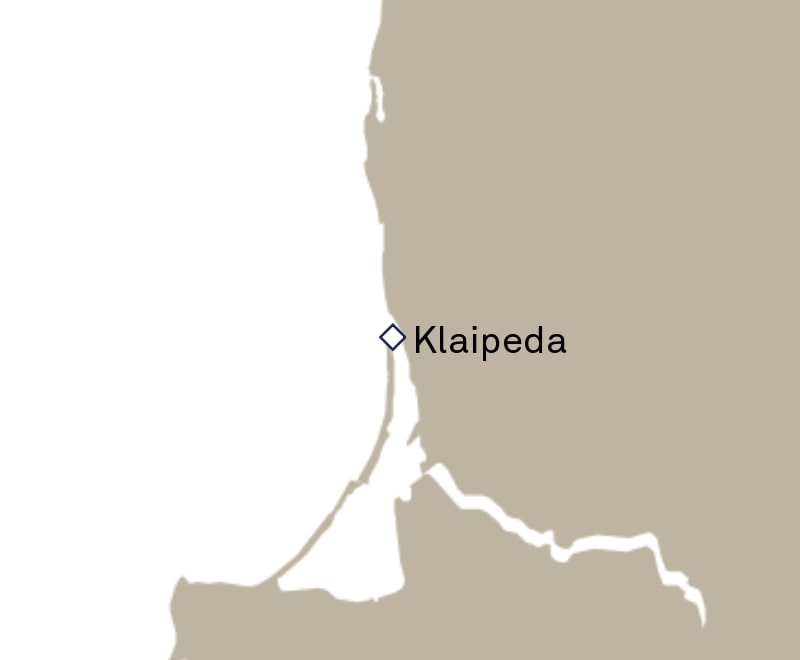Klaipeda, Lithuania cruises

Klaipeda’s old town features German-style 18th-century wood-framed buildings and Theatre Square, the city’s congenial gathering spot, is home to the neoclassical Drama Theatre.
Split in half by the River Dané, the northern half is more modern, while the southern section offers the more alluring cobbles of the Old Town. As you walk around, you’ll probably notice some of the many inventive sculptures dotted around, including the ‘Black Ghost’ climbing out of the water.
Founded by Teutonic Knights under the name of Memelburg in 1252, the former capital of the Prussian Empire has a distinct Germanic flavour, especially in the style of its many wooden- framed houses. While the Russians destroyed much of this German legacy –and especially the churches – during and after World War II, hints of it still remain. Teatro Square for instance, in the northern part of the Old Town, was where Richard Wagner lived and performed during his early career. Turgaus, the Market Square, also makes for an interesting stroll.
To the north of the city, Palanga attracts many visitors during the warmer months, when the so-called summer capital can become very busy. Yet the rewards of a visit are evident by its sandy beaches backed by dunes, its wooden mansions, numerous museums and even a palace.
Klaipeda sits on the northern end of the Curonian Spit, a 60-mile long peninsula less than 2.5 miles wide, and narrower than a third of a mile in places. The spit separates the Baltic Sea from the Curonian Lagoon, is crossed by Lithuania’s border with Poland, and has been listed as a UNESCO World Heritage Site for its fragile ecosystem. As well as dunes, it has swathes of pine forest, replanted to stabilise the spit, that are populated by deer, elk and wild boar, and just a handful of small towns. The largest of these is Nida, just inside the Lithuanian half of the spit, with its wooden cottages and boat-lined harbour.